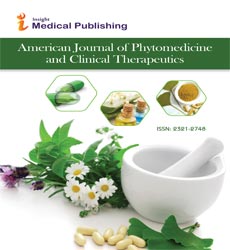ISSN : 2321-2748
American Journal of Phytomedicine and Clinical Therapeutics
Establishing a Complete Biological Network to Evaluate and Reduce Drug Interaction Risks Associated with Ritonavir
Lidvine Tron*
Department of Pharmacology, GLA University, Mathura, Uttar Pradesh, India
- *Corresponding Author:
- Lidvine Tron
Department of Pharmacology, GLA University, Mathura, Uttar Pradesh,
India,
E-mail: lidvine.tron@gmail.com
Received date: July 15, 2024, Manuscript No. IPAPCT-24-19570; Editor assigned date: July 18, 2024, PreQC No. IPAPCT-24-19570 (PQ); Reviewed date: August 01, 2024, QC No. IPAPCT-24-19570; Revised date: August 08, 2024, Manuscript No. IPAPCT-24-19570 (R); Published date: August 15, 2024, DOI: 10.36648/2321-2748.12.02.282
Citation: Tron L (2024) Establishing a Complete Biological Network to Evaluate and Reduce Drug Interaction Risks Associated with Ritonavir. Am J Phytomed Clin Ther Vol. 12 No.02: 282.
Description
Ritonavir is a protease inhibitor antiviral drug indicated in the treatment of severe acute respiratory syndrome coronavirus-2 infections in high-risk patients for a severe disease. Unfortunately, ritonavir, used to boost nirmatrelvir pharmacokinetics, can also inhibit or induce the metabolism of other co-administered drugs substrates. This may lead to a subsequent risk of adverse drug reaction and lack of efficacy. In this study, we aimed at describing the expert advices provided by the biological pharmacology network (i.e., the therapeutic drug monitoring specialists working in the laboratories of the pharmacology departments in France/ Belgium). We collected all specialized advices provided by the biological pharmacology network. Seven pharmacology departments actively participated in the study (Brussels Saint-Luc Hospital) in Belgium, Caen, Dijon, Nantes, Nancy, Rennes and Toulouse in France).
Ritonavir drug advice
Clinical department requiring the expert advice, patient's treatments and advice provided. One hundred and six expert advice on 753 drugs were provided during the seven months of data collection. Two centers provided 83% of all the expert advice (around 8/month). Patients originated form a transplantation department in 65% of the cases. The most common request were for cardiac drugs (28%), immuno suppressive drugs (24%) and endocrine drugs (18%). The advice were distributed as follows: treatment continuation, treatment discontinuation during the antiviral course, dosage adjustment and treatment switch in 59%, 28%, 11% and 1.6% of the cases, respectively. Only 2 pieces of advice (0.3%) constituted treatment contra-indications. Drug monitoring was proposed in 10% of prescription lines. Expert advice provided by the biological pharmacology network of the SFPT allows securing the combination of nirmatrelvir/ritonavir with other concomitant drugs. Most of eligible patients to the antiviral drug can benefit from it despite the risk of drug-drug interaction. we collected all specialized advice provided by the biological pharmacology network of the SFPT to medical doctors or pharmacists. Seven pharmacology departments actively participated participated in the study (Brussels Saint-Luc University Hospital in Belgium, Caen University Hospital, Dijon University Hospital, Nantes University Hospital, Nancy University Hospital, Rennes University Hospital).
Pharmacology insights on ritonavir
One hundred and six expert advice for one hundred and six patients regarding 753 prescribed drug lines of prescriptions were provided during the seven months of the study. It should be noted that the same drug prescribed in two different patients was considered as two prescribed drug lines. Two centers (Rennes University Hospital and Brussels Saint-Luc University Hospital) contributed for 83% (88 pieces of advice) of all the expert advice provided. For these two centers, this represents. This study reports an original framework for expert pharmacological advices provided by therapeutic drug monitoring pharmacologist specialists working in the laboratories of the French and Belgian pharmacology departments. After ritonavir drug approval, prescription has been reported to be challenging due to the DDI risk perception by clinicians. Indeed, some adverse events associated with the drug use have been reported with some of them being lethal ritonavir.
Neonatal pain management
Nevertheless, more than one drug out of four require temporary discontinuation and more than one out of ten a dosage adjustment. This emphasizes the need for a pharmacological expertise to evaluate the risk FL received research grants (paid to the institution from Astellas, Sandoz and Chiesi) and fees to attend meetings from Chiesi, Viiv, Gilead and Pfizer. AD reports consultancy fees from Alnylam and Merck, outside the submitted work. The majority of neonatal nurses who participated in this study had moderate to high knowledge levels regarding neonatal pain and non-pharmacological pain management. The majority of them used non-pharmacological pain management interventions to manage neonatal pain. The most commonly used non-pharmacological pain management interventions were breastfeeding, cuddling and swaddling. The least commonly used non-pharmacological pain management interventions were oral sucrose, positioning, this study provides empirical evidence for the use of non-pharmacological pain management by neonatal nurses to manage neonatal pain. This study also recruited nurses from private and public hospitals, which allowed for capturing information from more than one health sector. However, this study has some limitations. First, it has been conducted in one large city in Saudi Arabia (Jeddah), which may affect the generalization of the findings beyond this city. NICU nurses have adequate knowledge in terms of neonatal pain as well as nonpharmacological pain management interventions. There was no significant difference between NICU nurses and other neonatal nurses in terms of knowledge regarding the non pharmacological interventions for neonatal pain management. The most commonly used non-pharmacological pain management interventions were breastfeeding, cuddling and swaddling. The least commonly used non-pharmacological pain management interventions. The present study reveals significant information regarding the knowledge of neonatal nurses, especially nurses, regarding non-pharmacological pain management interventions and their use in Saudi Arabia. This study found that some evidence-based pain management recommendations, such as oral sucrose, positioning and facilitated tucking, were not adequately used by neonatal nurses.

Open Access Journals
- Aquaculture & Veterinary Science
- Chemistry & Chemical Sciences
- Clinical Sciences
- Engineering
- General Science
- Genetics & Molecular Biology
- Health Care & Nursing
- Immunology & Microbiology
- Materials Science
- Mathematics & Physics
- Medical Sciences
- Neurology & Psychiatry
- Oncology & Cancer Science
- Pharmaceutical Sciences
